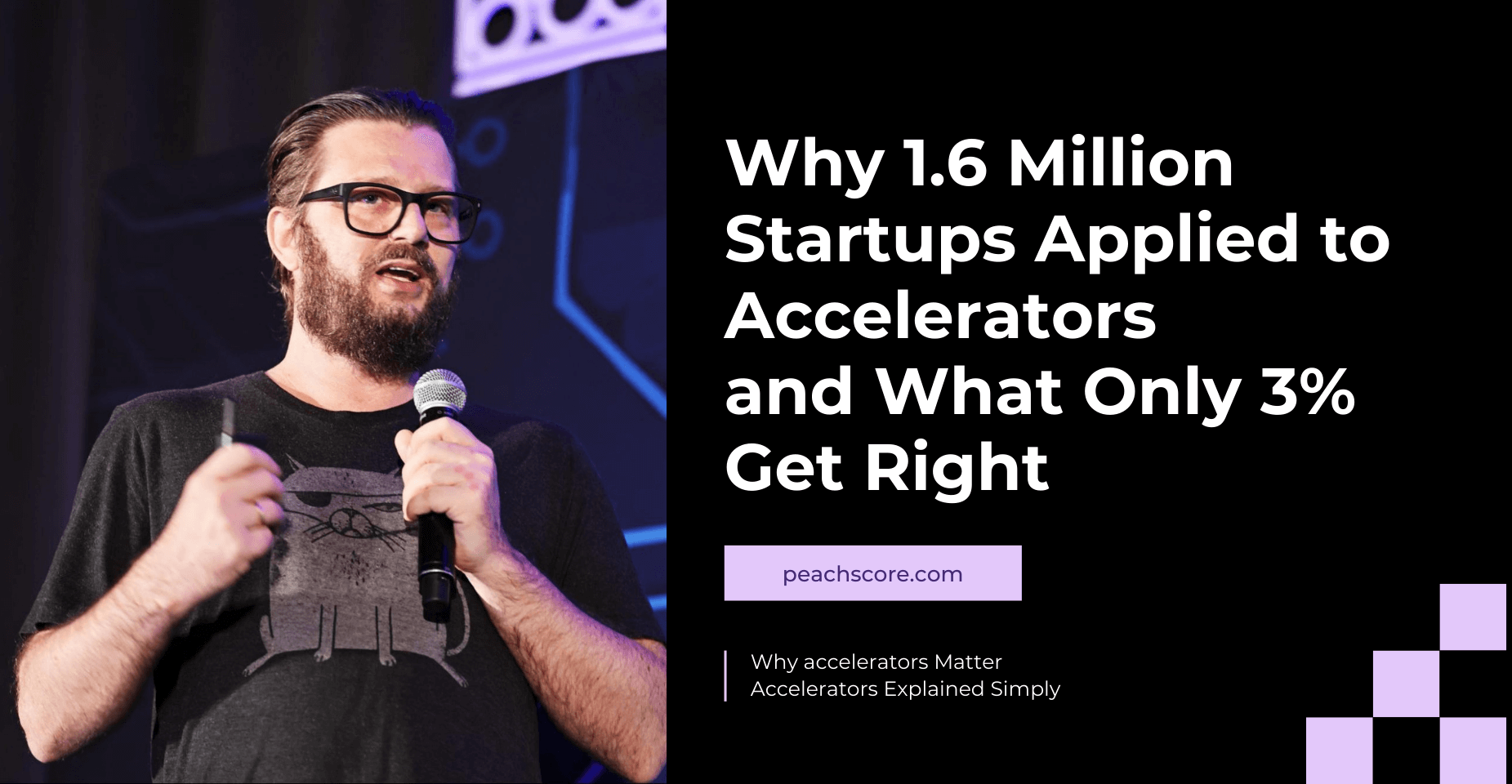Accelerator
November 23, 2025
Why 1.6 Million Startups Applied to Accelerators Last Year — and Only 48,000 Got In
What Every Founder Should Know About Accelerators But Few Actually Do
What Every Founder Should Know About Accelerators But Few Actually Do
